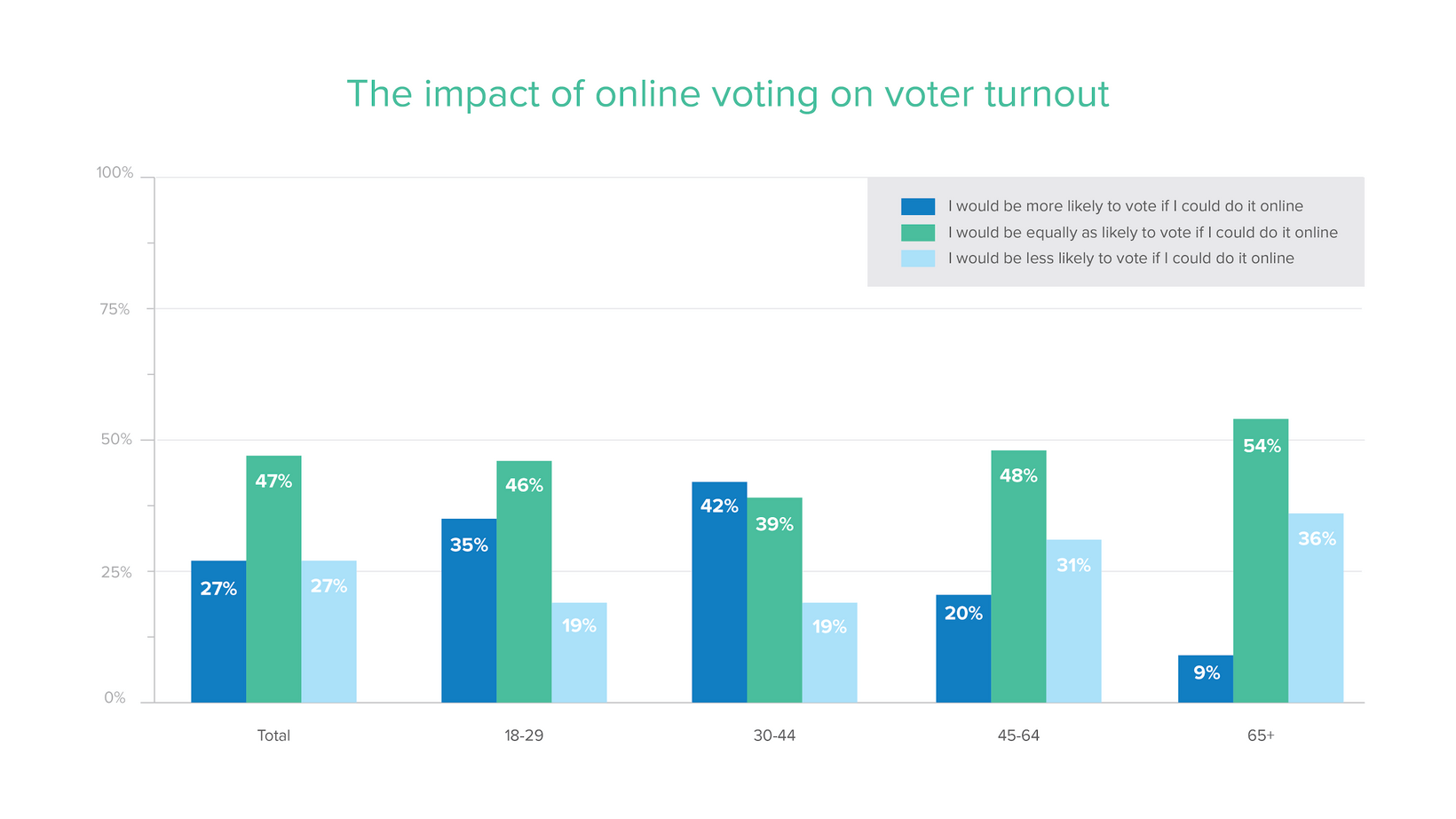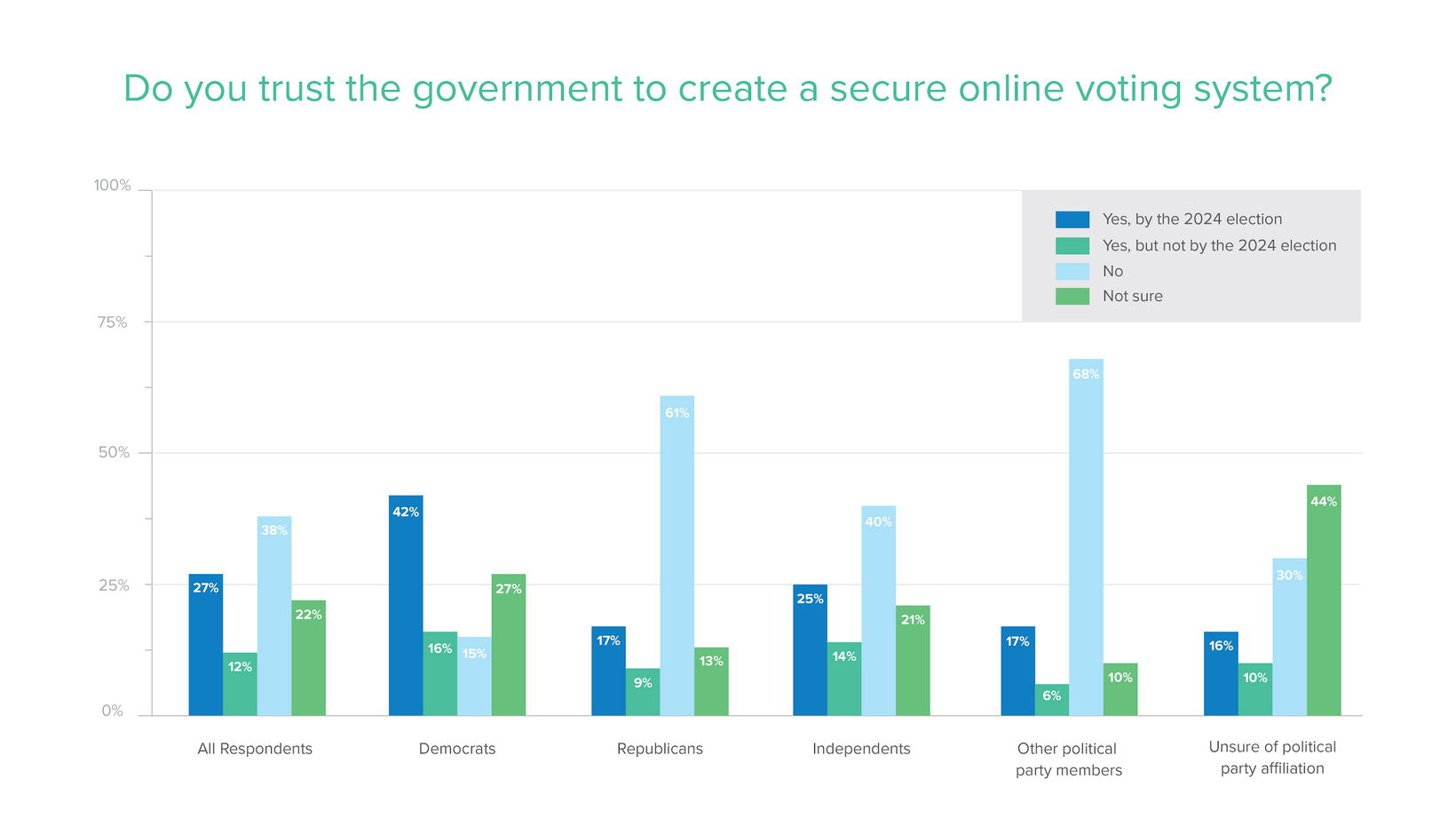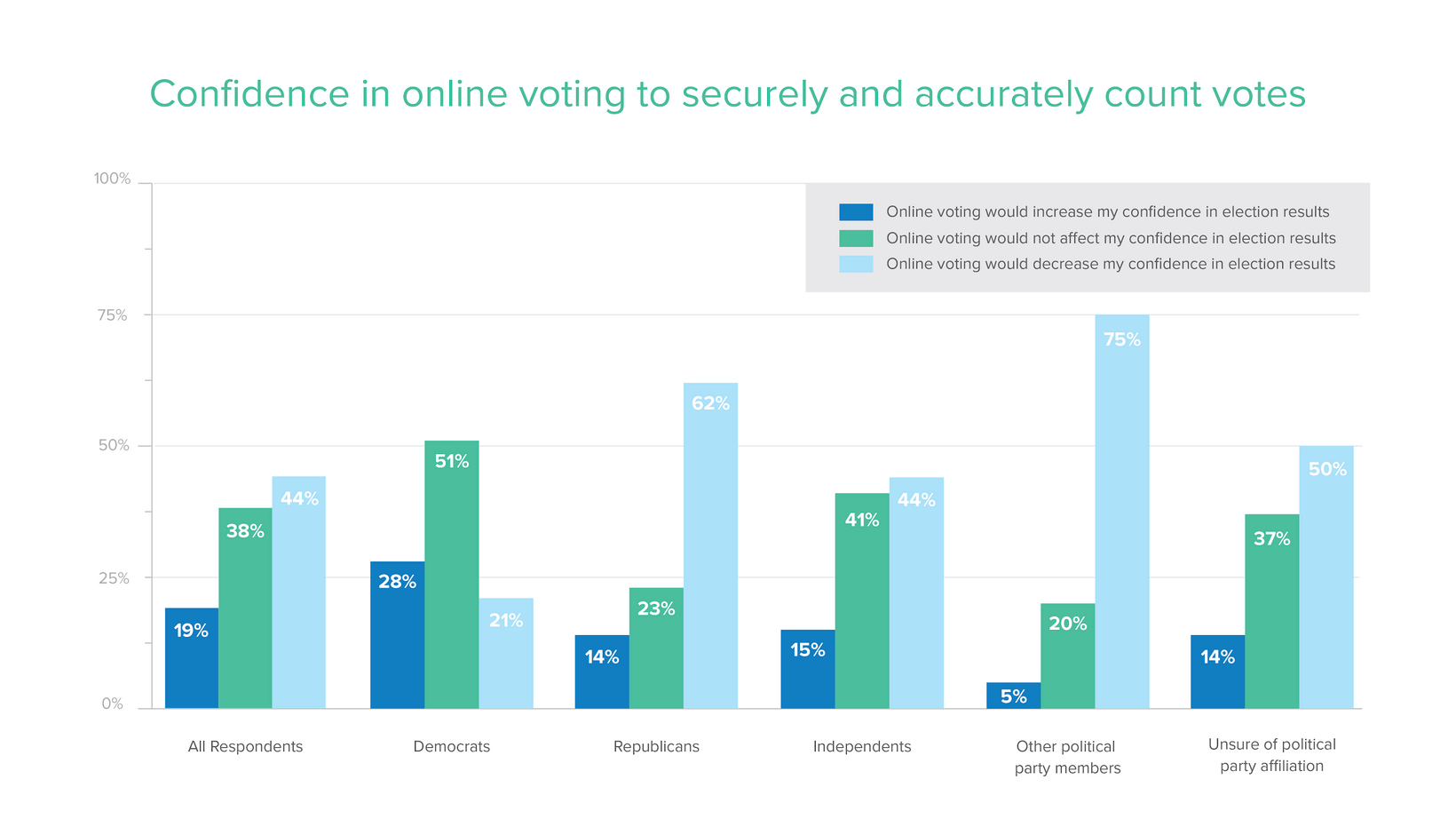The Future of Online Voting in the U.S: New Data Reveals Voter Distrust in Government
Between long lines at voting polls, mail-in voting controversies, and delayed election results — not to mention the health and safety concerns of voting during a pandemic — 2020 spurred significant debate around the possibility of online voting. We’ve seen the same problems repeat in the Georgia runoff. Addressing these issues and the future of online voting were topics those of us at Okta were eager to explore.
To pinpoint what people of all age groups, demographics, and political parties really think about the prospect of shifting government services and voting online, we recently commissioned YouGov to survey 1,000 Americans. Their responses told us that online voting could improve voter turnout, but many people don’t trust the government to make it a reality.
Online voting could have a positive impact on voter turnout
74% of respondents say they’d be equally as likely, or more likely, to vote if they could do it online. Despite record voter turnout, 80 million Americans still didn’t vote in the 2020 election. Removing the large time commitment that often comes with in-person voting could inspire some people to make their voices heard.
When it comes to generational reactions to the prospect of voting online, 42% of 30-44-year-olds say online voting would increase their likelihood of casting a ballot, followed by 18-29-year-olds (35%), 45-64-year-olds (20%), and 65+ (9%). For the most part, every age group sees the benefits and ease that online voting could bring, but not surprisingly, older respondents will need the most convincing.

Beyond voting, respondents also show interest in accessing other government experiences digitally. The majority (57%) grade the online Census experience as “Excellent,” and an impressive 80% say they wished more government services were available online. This sentiment was fairly consistent across all age groups, which shows us that the door is open for the right technology to play a role in making more services digitally available.
Trust in the government to create a secure online voting system depends on political party
While people like the idea of having more government services online, their trust has its limits. Only 27% of respondents say they trust the government to create a secure online voting system by 2024, and 12% say they trust the government will create one, but not by the next presidential election. 38% share that they don’t trust the government to create one at all, and 22% are unsure.
When it comes to breakout by party, Democrats are much more likely to trust the government to create a secure online voting system — 42% believe the government will do so by the 2024 election, compared to only 17% of Republicans. 15% of Democrats say they don’t trust the government to create a secure online voting system, compared to 61% of Republicans.

The widespread uncertainty our survey unveiled supports something I’ve long believed: trust is the biggest obstacle to implementing online voting in the United States. We have the tech talent and expertise to eventually build a secure voting platform, but if we don’t increase trust in our technology and government, those efforts will go to waste.
To get people on board with new technology solutions and government initiatives, it’s important that we take a proactive stance against misinformation online. Currently, 63% of respondents think social media companies should do more to regulate the accuracy of political information online. Only 13% of survey respondents feel like they can trust online information about political candidates, and 65% think the government should do more to regulate the accuracy of political information online.
Democrats think online voting could increase confidence in election results
As we saw with the 2020 election, for many voters, trust was low and uncertainty high for many voters — especially when it came to counting close swing states. We asked if online voting would instill more trust in our election outcomes, and Americans are split. While nearly one in five (19%) of Americans believe online voting would increase their confidence in the security and accuracy of election results, 44% believe it would make them less confident in them.
Democrats especially think online voting is the way of the future for building confidence in election results. 79% of Democrats surveyed are more or equally as confident in online voting systems’ accuracy and security as compared to our current voting process, while only 37% of Republican respondents share this same sentiment.
Perspective on the security and accuracy of online voting was fairly consistent across age groups, with 27% of 18-29-year-olds showing more confidence, followed by 28% of 30-44-year-olds. The main exception was in ages 65+: only 6% of that age group feels confident in the security and accuracy of online voting in future elections, meaning it would take more persuading to get them on board with a fully digital voting system.

It’s promising to see that online voting could benefit voter turnout numbers, but that won’t happen without overcoming the biggest barrier: lagging trust. We can overcome the “technology problem” we associate with online voting with state of the art technology, the right talent, and an open mindset — which would go a long way in increasing trust in online voting. But it will take time to address people’s emotional reactions to online voting and the current lack of trust in our government.

